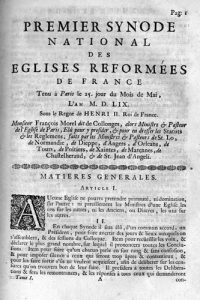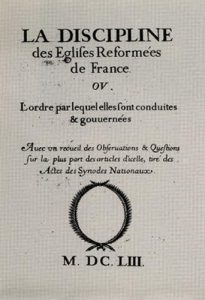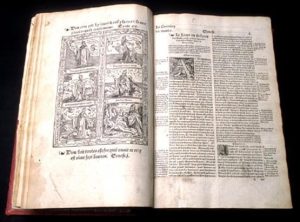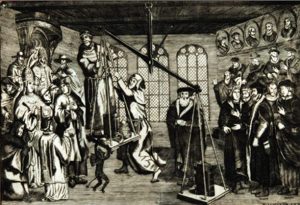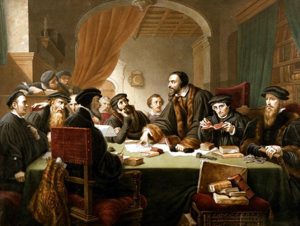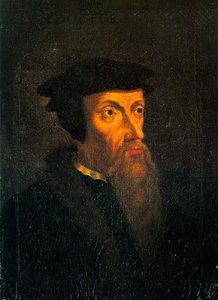A progressive organisation
In the early 1530’s, Luther and Zwingli’s followers would meet at the home of the one or the other, to read the New Testament and pray together. In the 1540’s more and more such informal meetings took place and gradually became regularly held services, sometimes comprising the Lord’s Supper.
Calvin wished for a better defined organisation. Two types of organisations existed close to the kingdom : one in Strasbourg and the other in Geneva. The Geneva pattern was to be chosen, and the first rules and regulations were adopted at the meeting of the French Reformed Churches’ representatives in 1559. It was the first national synod and it voted for :
- a confession of faith
- a Church discipline.
The Confession of Faith
The Reformed Churches adopted a new Confession of Faith based on Calvin’s project. It comprised 40 articles. And as it was to be ratified during the Synod of La Rochelle in 1571, it was called the La Rochelle Confession of Faith.
While claiming its link with the faith of the Church of the early centuries, the Reformed Churches clearly kept their distance from the Roman Catholic Church. They very clearly rejected all notions of intercession by the Saints, of purgatory, and of any power of the Church.
The discipline
Akin to Calvin’s ecclesiastical statutes of the Church in Geneva, the Church discipline accurately defined the common organisation of the Reformed Churches. This organisation was fundamentally non hierarchical.
Local Churches were run by a council of elders called a consistory. This council held a monthly meeting with the pastor.
The elders numbered from 5 to 10 in each Church and were chosen by the congregation. They watched over the religious practices and the behaviour of the parishioners, they settled disagreements and took care of the poor.
The pastors, ministers of the Word, were elected by the elders’ council. As from 1571 they underwent an exam set by the provincial synod. But they were first and foremost preachers, who explained the Word of God as read in the Bible. They administered the two sacraments, namely Baptism and the Lord’s Supper. Most French pastors were trained at the Geneva Academy.
Synods were an original institution adapted to the French context of Reformed Churches scattered over the country. They comprised representatives of the Churches, pastors as well as lay people, and served as episodic links between the local Churches, all of which maintained their independence and were of equal status.
Synods met on provincial and national levels.

